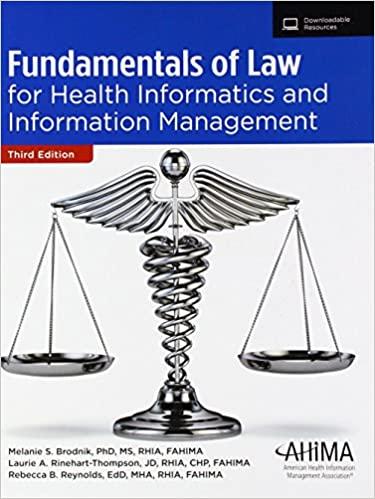Question
Section 4 of the federal Food and Drug Act prohibits, in part, the sale of food that consists in whole or in part of any
Section 4 of the federal Food and Drug Act prohibits, in part, the sale of food that "consists in whole or in part of any filthy, putrid, disgusting, rotten, decomposed, or diseased animal...." Under the Act, Congress delegated authority to the federal agency, theUS Food and Drug Administration (FDA), to enforce the Act.
Recently, FDA inspectors reported finding thousands of live rodents, dead rodents in various states of decay, and rodent feces, in the warehouse of a major national food distributor, Acme Foods. The food in the warehouse was to be distributed throughout the United States. As a result of the findings from the FDA inspection, the FDA ordered Acme to close its warehouse and to cease in distributing the food, that was stored in that warehouse, to its national chain of stores.
Assume that Acme Foods sued the FDA claiming that Congress exceeded its authority under the U.S. Constitution in enacting the prohibition in Section 4 of the Act (above) and that, therefore, FDA lacked the power to order Acme to close its warehouse.
1. What legal analysis will the Court apply in this case to determine whether Congress has exceeded its constitutional authority to enact Section 4 of the Act? Be sure to explain the Constitutional principles that relate to the facts of this case
2. Do you think Acme Foods will win its lawsuit against the FDA? Explain why or why not by applying the applicable legal analysis to the facts.
Step by Step Solution
There are 3 Steps involved in it
Step: 1

Get Instant Access to Expert-Tailored Solutions
See step-by-step solutions with expert insights and AI powered tools for academic success
Step: 2

Step: 3

Ace Your Homework with AI
Get the answers you need in no time with our AI-driven, step-by-step assistance
Get Started


